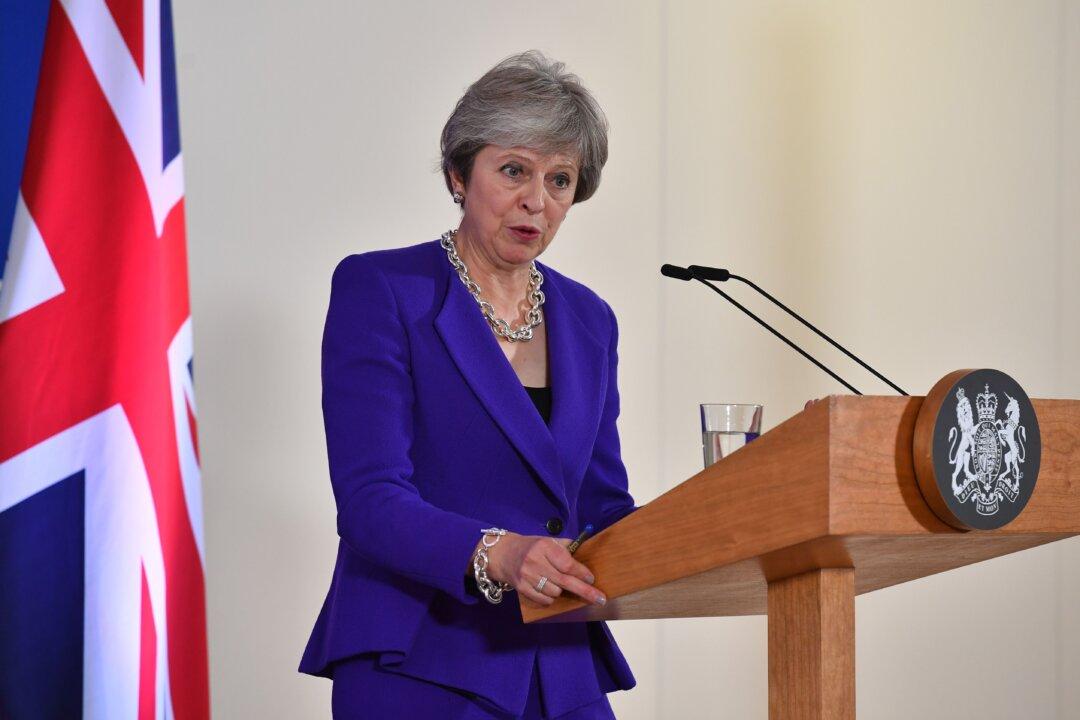LONDON—Prime Minister Theresa May will on Oct. 22 say that 95 percent of Britain’s Brexit deal has been agreed but repeat her opposition to a European Union proposal for the Irish border, a major stumbling block, as criticism within her party grows.
Facing some of the fiercest attacks to date over her Brexit plans after again failing to clinch a deal at an EU summit last week, May will try to calm passions in parliament where her strategy has angered eurosceptics and EU supporters alike.





